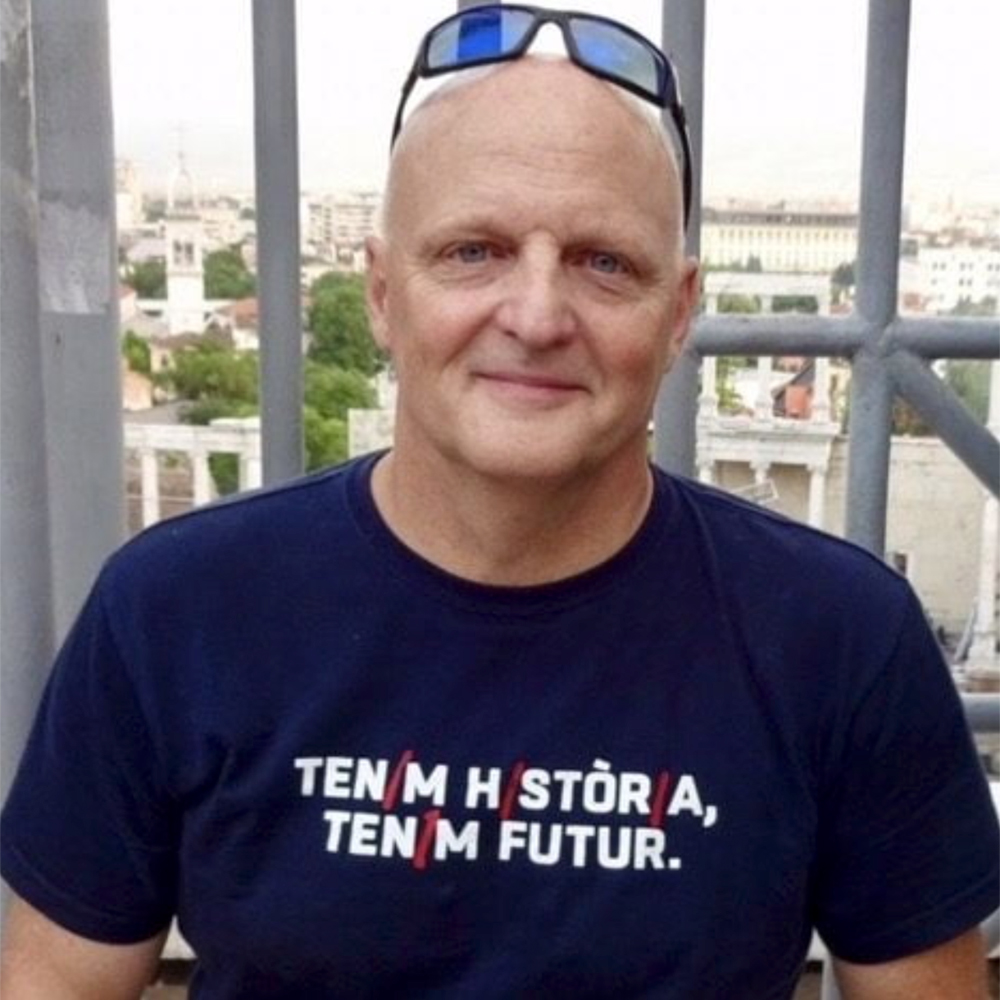No, the title of this piece is not a mistake, nor is it the result of an AI bot burrowing into the servers at Brownstone, removing all the content the team there had lined up for today’s edition, and replacing it with pieces filched from the National Enquirer.
Nope, it is rendered on your screen exactly as I intended it to appear. And I believe it is absolutely true. In fact, I’m going to follow it up with another true assertion that I’m guessing you’ve seldom, if ever, heard or read before: “George “Cheney” Bush Jr. is, along with Lincoln and FDR and perhaps one or two others, among the very small group of this country’s truly transformational presidents.”
Note what I didn’t say. I didn’t say he was one of the worst, the best, or most intelligent presidents. I simply said that his presidency was transformational in the sense that it radically transformed the way most of the country’s citizenry viewed the nature of our relationship to the central government, and from there through the processes of government economic seeding, our relationships with most of the other institutions with which we interact in the course of our daily lives.
This transformation was not a matter of happenstance. Rather, it was quite consciously designed and pursued through an extremely well-thought-out program of propaganda implemented with the full cooperation of the country’s major media and its more important institutions of culture and higher learning.
Its core intent was as unsubtle as it was diabolical. It was designed to replace the ethos of Enlightenment optimism and trust in the common man from which our Constitutional system emerged, with what can best be described as a neo-medieval one, wherein citizens are taught from their earliest moments to be frightened, and to perceive of themselves as defenseless, and thus in need of attaching their destinies to the self-proclaimed “strong men” and “experts” (our modern correlates of the warrior-nobles who were the original cornerstones of the feudal system) who, it is said, will deliver them to the world of safety and prosperity.
It was and still is a case of elite culture-planning at its finest. Or to put it another way, it was the chess game being played by the elites while millions of our fellow citizens, perhaps even you, were enjoying the rush that so many people apparently get from knowing that some entity connected to their own tribe was meting out destruction and death to people who had never come close to doing anything to them.
Those of us who talked about all this in real time, especially about how the new but simultaneous very old feudal ethos of security über alles would fatally corrode an Enlightenment constitution rooted in an Enlightenment conception of mankind, were dismissed as silly cranks, when not demonized as anti-patriotic cancers.
“And,” to paraphrase Kurt Vonnegut, “so it went!”
The transformation was an amazingly swift and effective one, right up there in historical terms with Atatürk’s incredible (which is not to say necessarily admirable) feat of turning a sprawling royalist, confessional,and staggeringly multicultural empire expressing itself in Arab script into a secular, monocultural, republic-writing in Latin script, in a few short years.
Once government-generated fear replaced Enlightenment-style hope as the central integrating motif of the public sphere, new possibilities opened up everywhere; that is, for those already in power and seeking to strengthen their grip on it.
Their minds inundated by spectral fears placed in their heads by the government and the media, most citizens happily gave away rights (remember all the simps gleefully proclaiming that they had “nothing to hide?”) such as habeas corpus, probable cause, and the right to be secure in their “persons, houses, papers (the equivalent of our computers today), and effects, against unreasonable searches and seizures.”
Once prevention of harm, however spatially and temporally remote and contingent in nature it might be, came to replace thriving in liberty as our core cultural desideratum, new doctrines like R2P (an only slightly rewarmed version of the “doctrine” Hitler promulgated to justify his invasions of the Sudetenland, Danzig, and Alsace-Lorraine, given a convenient academic and bipartisan facelift by the “liberal interventionist” Samantha Power) were docilely accepted by the public, as were the subsequent premeditated destructions of Iraq, Libya, and Syria, essentially justified under the same rubric.
This massive transformation, which turned a populace once presumed to be confident, hopeful, and generally innocent into a mass of frightened and frightenable suspects in potencia soon became quite palpable to me on my fairly frequent entries into the US from overseas trips.
What used to be a joyful and stress-free occasion was turned, almost overnight, into an often unpleasant and fraught encounter.
Presuming one is not a documented fugitive from justice, what possible reason should the government have for doing anything beyond checking the veracity of a citizen’s passport at the border? The answer is “absolutely none.”
But of course, that was never the point. It was all about conditioning people to doubt their own self-sufficiency and goodness before power and to instead look to our “strict fathers” in government for inspiration, protection, and succor.
As I just suggested with my reference to Samantha Power, this drive to remodel our culture became a completely bipartisan effort over time. During his eight years in office, Barack Obama never missed an opportunity (look it up) to remind people—in the complete absence of any constitutional or statutory justification as there is none—that his first job as president was to “keep us safe.”
No one, other than perhaps cranks like me, seem to have any problem with this rhetorical rewriting of the Constitutional order that completely inverted the Founders’ clear intention that this not be a country steeped in fear and bent on finding providential father-figure protectors, but rather one filled with people confident in their own personal and collective means of getting through difficult and anxious times.
As I have chronicled in much greater detail elsewhere, Covid was nothing more and nothing less than a greatly expanded and more zealously imposed version of the same culture-planning template.
The Covid operation’s key innovation in the propagandistic realm—one whose roots we now know were planted in the last years of the Obama administration and then sewn into place by deep state operatives during the Trump years—was to convince Americans of their inability to engage in the absolutely core human competencies of intellectual and moral discernment.
With this, the desire to induce learned helplessness (see more here), begun by the government and its corporate allies in the wake of September 11th, reached its emasculatory zenith.
They had successfully convinced a considerable chunk of the population that they literally could not trust their own insights and thoughts, and that they therefore had to rely on informed “experts” working hand in glove with a suddenly lavishly financed private-partner censorship apparatus to save them, the inchoate intellectual and moral slugs that they essentially are, from their own impure thoughts as well a the impure thoughts of those bent on surreptitiously taking over their jelly-like minds.
Up until yesterday, there was only one problem for those carrying out these policies: the First Amendment, the backbone of our Constitution, implemented when vigorous Enlightenment-oriented minds still believed that individual human beings could live and perform as something more than passive receptacles of the ideas of others.
Judging by the questions and statements they issued yesterday, however, most of our justices no longer believe the citizenry have these millennially-ratified capabilities. This is a position crystalized by the comments made by the newest member of the group, Ketanji Brown Jackson, when she said—following Chief Justice Roberts’ ridiculous suggestion that most children wouldn’t be able to resist other children’s demands that they jump out of high windows to their deaths—that the government has a “duty” to protect people for being exposed to “harmful” information.
The big and thorough thinker that she is, Brown Jackson appeared completely untroubled by the moral and semantic problem inherent in determining what is, in fact, “harmful,” or the complications implicit in the process of deciding exactly who should be invested with the power to determine what goes into the Play-Doh-like minds of most citizens.
Though many people of a more partisan cast may not want to hear it, the constitutional obtuseness demonstrated by Brown Jackson and an apparent plurality of her Supreme Court colleagues did not come out of nowhere.
No, their neo-feudal thinking, so at variance with its core values that animated the authors of the Constitution and plagued by a semantic and conceptual primitiveness that would have made a high school sophomore of forty years ago blanche, is the result of the fact that when the robes come off, the justices basically consume the same diet of propaganda that we all do. And sadly like most of us, they have learned to conceive of themselves and their fellow citizens as quite small and weak, and generally lacking the ability to confidently face the world in the absence of state tutelage in the most intimate levels of their being.
And because of this, I fear they will have no problem inventing a new legal practice out of thin air—a sort of cognitive R2P—to justify the state’s current method of desire to continue ruling us through an unbroken series of Psy-Ops.
Join the conversation:


Published under a Creative Commons Attribution 4.0 International License
For reprints, please set the canonical link back to the original Brownstone Institute Article and Author.









